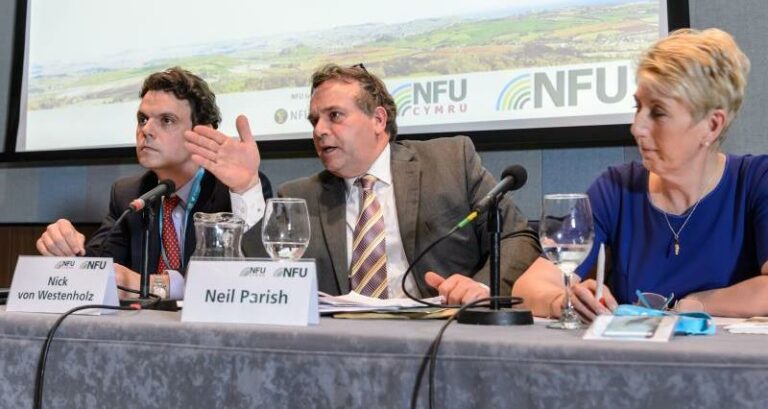Farmers have expressed bitter disappointment over the defeat in the House of Commons of an amendment to the Agriculture Bill that would have written into law protections against the import of food produced to lower environmental and animal welfare standards, such as chlorinated chicken from America.
The amendment was brought forward by Neil Parish MP, chair of the EFRA select committee, who said he was disappointed by the defeat. He had said MPs should adopt the amendment if they were “serious about maintaining high standards in trade deals”.
The Ulster Farmers’ Union said it bitterly disappointed with the outcome of the House of Commons Agriculture Bill debate. MPs rejected the proposed amendment to the bill that would ensure food imported from any potential trade deal would have to meet UK production standards.
UFU president Ivor Ferguson said, “We are extremely deflated by the result of the House of Commons Agriculture Bill debate. MPs have decided that the Bill remains fit for purpose and no amendments or improvement is needed. This logic has bewildered the entire UK farming community considering how the COVID-19 pandemic has emphasised the importance of local food production and food security.”
The UK Government has publicly indicated its intention to protect both the NHS and UK food standards as it starts its negotiations with the US on a possible trade deal, but yet it won’t back this commitment and provide the much-needed reassurance to do so by including it in the most critical piece of agricultural legislation for many years.
“The MPs decision leaves UK agriculture in a very uncertain position. The fear remains that down the line our market could be flooded with imports produced to standards which would be illegal here, undermining our farmers and putting the entire farm family structure at risk. It’s a kick in the teeth to our primary producers who take pride in upholding the highest environmental, animal welfare and food safety standards, and we rely on them now more than ever. It’s extremely concerning that the MPs vote concluded that it wasn’t essential to protect the hand that feeds them.
Farmers concerns are particularly acute as it was reported last week that the department headed by Liz Truss, which is leading trade negotiations with the US, was keen to offer concessions such as lower tariffs on key areas such as agricultural produce, to ensure a trade deal was secured by the end of the year.
NFU director of EU exit and international trade Nick von Westenholz said: “Farmers will be very concerned to hear that the UK government is considering freeing up access to our market for food produced overseas, especially at a time when they are struggling to manage huge volatility caused by the coronavirus crisis.
“Any concessions UK negotiators give on market access – such as lower or zero tariffs on agricultural goods – must be accompanied by clear conditions on how those goods have been produced. Anything else would represent a clear breach of the government’s own explicit red lines in trade negotiations, that it “will not compromise on our high environmental protection, animal welfare and food standards.
“Furthermore, if the trade deal is going to have a net benefit for farmers as has been promised, the UK government needs to set out clearly what additional access has been granted by US negotiators which will at a minimum compensate for the loss of market at home.
“We’ve long argued that any trade deals signed by the UK must ensure that agri-food imports are produced to at least equivalent environmental, animal welfare, and food safety standards as those required of producers in the UK.
“This is not simply an issue of fairness to our farmers, who have to meet high and costly production standards, but is also vital if the UK is to show international leadership in promoting high standards of farming across the world.”


